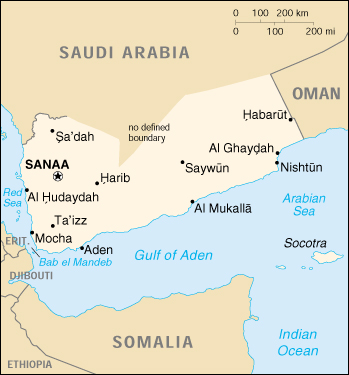President Obama has approved a request from the CIA to begin launching targeted assassinations through drone strikes even when the identity of the victims is unknown.
 CIA Director David Petraeus, had requested permission to employ the tactic used in Pakistan for years called “signature strikes,” which involves targeting groups of people exhibiting “suspicious behavior,” a loosely-defined judgement that would give the agency carte blanche to kill whoever it pleases in Yemen.
CIA Director David Petraeus, had requested permission to employ the tactic used in Pakistan for years called “signature strikes,” which involves targeting groups of people exhibiting “suspicious behavior,” a loosely-defined judgement that would give the agency carte blanche to kill whoever it pleases in Yemen.
Obama approved the request this month and the CIA and Joint Special Operations Command (JSOC) have already begun to launch missile strikes employing this new authority.
The U.S.-supported Yemeni regime has asked for more “counter-terrorism aid,” but explicitly disagreed with the White House’s new policy of “signature strikes.”
However, Pakistan has long called for an end to U.S. drone strikes on its soil, only to be ignored by the Obama administration. That seems likely to happen with Yemen as well.
The official broadening of the secret drone war is troubling, both legally and morally, but it really seems to merely codify what has already been taking place, in a sort of retroactive legalization process. The quickening pace of the drone war in Yemen – about 30 strikes in the past year – has led to the targeting of militant groups unaffiliated with al-Qaeda which pose no threat to the U.S.
The crux of the Obama administration’s legal justification for killing militants outside the war zone without due process is that they present an “imminent threat” to America. The rationale is an especially weak one, but it is even weaker if they don’t even know who they’re killing.
By most expert accounts, the drone war is worsening the problem in the form of blowback. Gregory Johnsen, a Yemen expert at Princeton University, recently wrote, “Body bags are not a good barometer for success in a war like this. I would argue that U.S. missile strike[s] are actually one of the major — not the only, but a major — factor in AQAP’s growing strength.”
Jeremy Scahill, reporting for Nation, exposed in February how U.S. airstrikes that kill civilians and those ill-defined as militants – along with support for the brutal Yemeni government – foments anti-Americanism and fuels international terrorism.
As Charles Schmitz, a Yemen expert at Towson University in Maryland, tells told the Los Angeles Times, “The more the U.S. applies its current policy, the stronger Al Qaeda seems to get.”
“U.S. involvement is far more than ever in Yemen. We have no evidence that all those being killed are terrorists,” Abdul Salam Mohammed, director of Abaad Strategic Center, told CNN. “With every U.S. attack that is conducted in Yemen al Qaeda is only growing in power and we have to ask ourselves why that is happening.”
“Drones are a weapon of terror in many ways, and the kind of hostility this is going to breed may not be worth the counter-terrorism gains,” says Barbara Bodine, who was U.S. ambassador to Yemen from 1997 to 2001.


